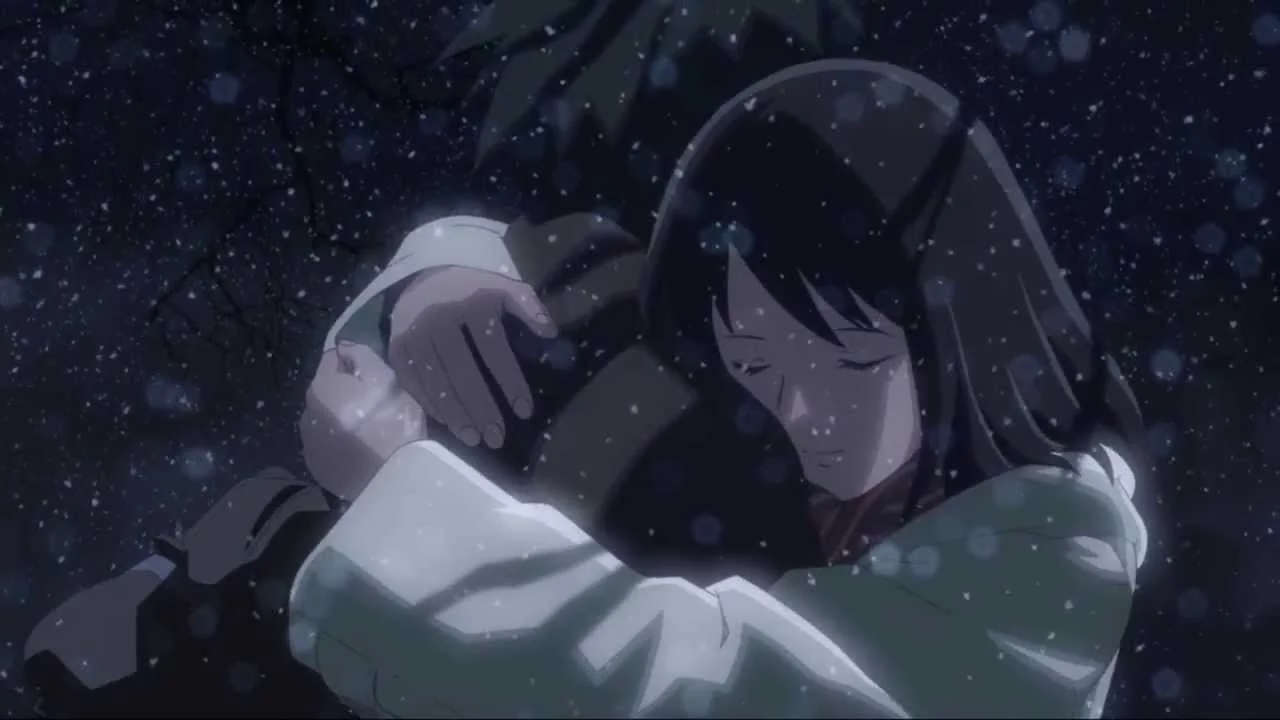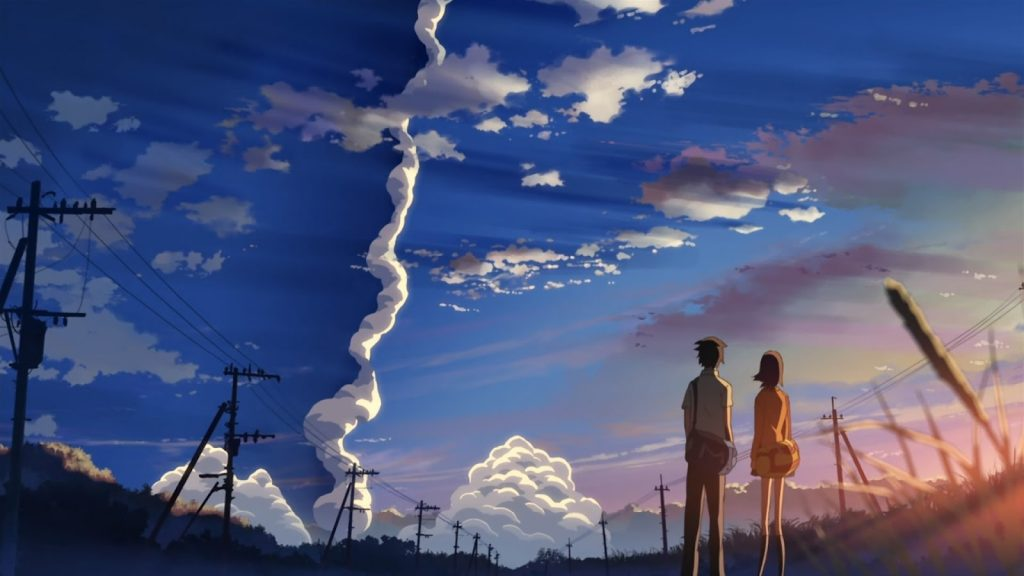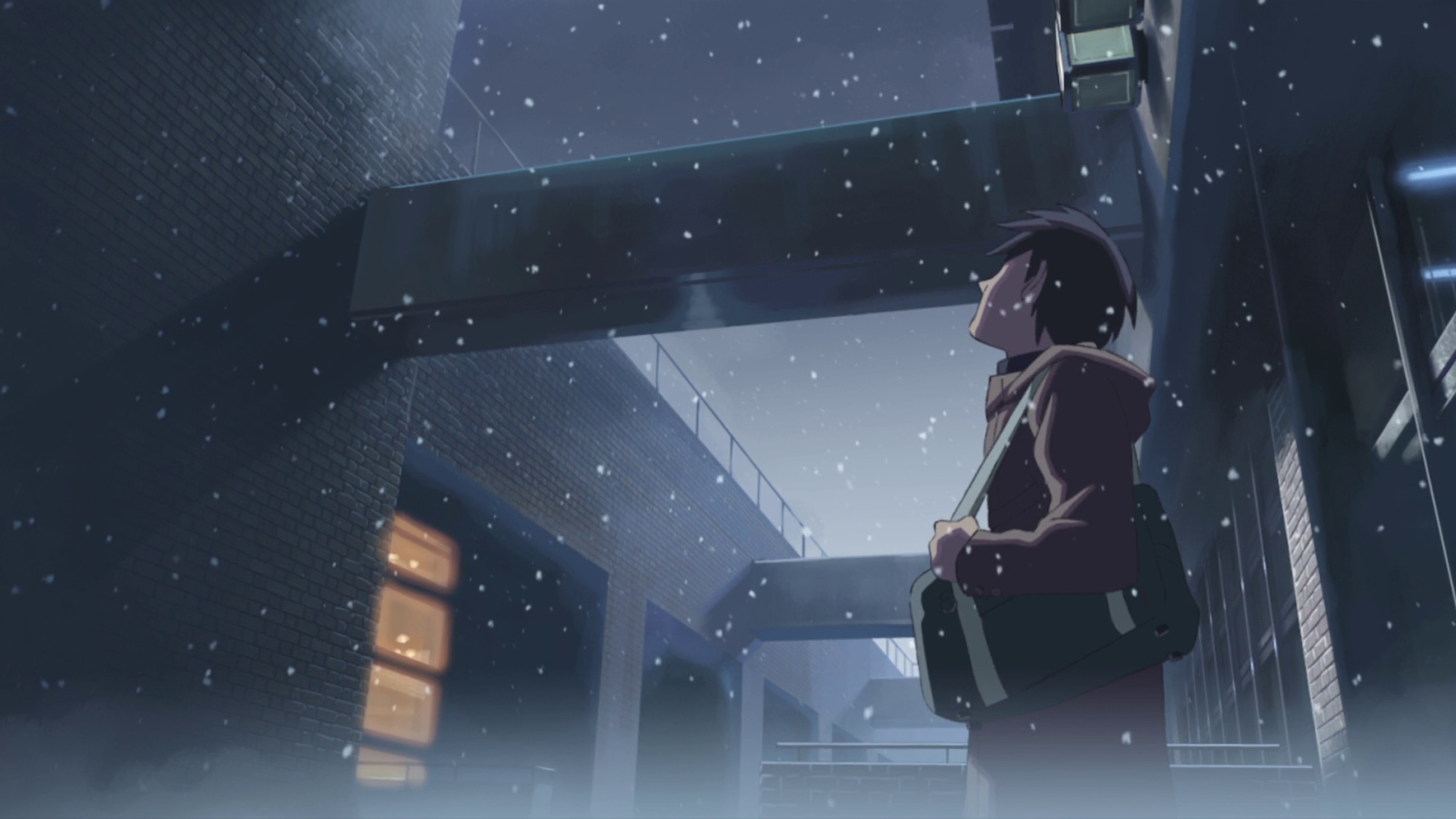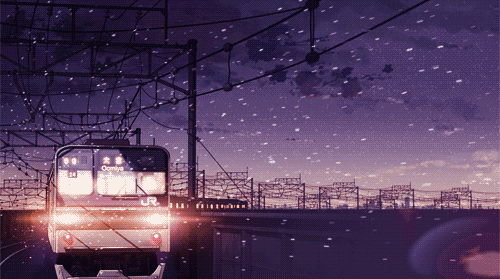5 Centimeters per Second (2007)—A Harsh Reality in a Beautiful Lie

It’s funny how life works. Your friends in childhood may drift away from you one way or another, and despite our best efforts to keep in touch with them, sometimes, it’s not meant to be. Director Makoto Shinkai, most famous for his movie Your Name (2016), made a three-episode movie addressing this very issue: 2007’s 5 Centimeters per Second.

Set in Japan, Tono Takaki is a 13 year old middle schooler who befriends a girl named Akari Shinohara after she transferred to his school. The two spend much of their free time together in the library during recess due to their allergies and common interests. However, when Akari moves away due to her parents getting another job, she and Tono exchange letters almost every day. Despite their frequent communication, the two eventually drift apart. Tono discovers his parents will soon move away to a further district, making it impossible to stay in regular contact with Akari. As such, he decides to visit her one last time. With a final letter in tow, he spends hours riding the shinkansen to meet up worth her. The two meet up, but Tono loses his letter. Akari and he discuss about their lives. The two walk around in the snow and share a kiss under a Sakura tree. After spending the night in a nearby small shed, Akari bids farewell to Tono, as he boards the train to go home.

Tono, now on his third year in high school, is preparing to go to college and get a job. Despite this, he still hasn’t forgotten about Akari, often having vivid dreams where he’s sitting in a field under a starry night sky with her. Meanwhile, his friend and fellow student, Kanae Sumida, develops feelings for Tono, but struggles to tell him. The two spend lots of time together, often walking home together. One day, Kanae plans to tell him her feelings, however, she takes note of how he seems to always look past her. Eventually, Kanae doesn’t tell him.

Now a programmer at a big company in Tokyo, Tono seems to have everything in life. However, he still hasn’t forgotten Akari and still dreams of being beside her. His feelings toward Akari creates a rift between his current girlfriend and him, ending their relationship. Depressed, he quits his job. Meanwhile, Akari is engaged to another man and plans to marry him soon. That night, both Tono and Akari have the same dream: reliving their last encounter in the snow, kissing under the Sakura tree. While walking down Tokyo one Spring, the two both cross paths by the train tracks, however, just as Tono turns to look at Akari, two trains pass by, obscuring his sight of her. When the two trains leave, Akari is nowhere to be seen. Tono smiles to himself and keeps walking.

Like many, I first heard of Makoto Shinkai from 2016’s Your Name. After watching it, I hunted down all of his other films, bent on watching them. After 2019’s Weathering with You and 2013’s The Garden of Words, I was a bit underwhelmed, as none of those films matched the quality of storytelling that was in Your Name (2016). Hell, I thought the two films had a similar formula: talking about two young people falling in love and wanting to be together, but unable to, due to life’s circumstances, only to end up together in the end. However, 2007’s 5 Centimeter per Second doesn’t follow that formula. Unlike most of his films, 5 Centimeters per Second (2007) has no magical elements in it and is set completely in reality. Also unlike his past and future works, the main characters do not end up together in the end; rather, it ends with Tono understanding that his obsession with Akari was holding him back in life and denying him the happiness he deserved. By letting go of his feelings from the past, he is able to embrace his future.
Two recurring motifs appear throughout the film: Sakura cherry blossoms and trains. Makoto Shinkai himself said that this film was titled “5 centimeters per second” because he wanted to focus on the slow nature of life, as well as how people drift apart as time goes on. This is echoed in the film by Akari who says that Sakura petals fall at a rate of 5 centimeters per second and how the petals stray further from the tree. As for train motif, I believe the trains represents life. You get meet different people who get on at different stations, all while the train speeds towards your final destination. During the ride, people will jump on and off, all you can do is enjoy the ride. Towards the end, right before Tono can catch a glimpse of Akari, two trains pass by, signifying the two crossing paths once again in life. However, it’s only for an instant, and after they cross, it’s as if nothing happened, mirroring what happened between Tono and Akari.

Overall, 5 Centimeters per Second (2007) explores the dynamic of relationships between friends and lovers. As we get older, we may lose contact with those who we were close to for so long. Sometimes, life just gets in the way, and we are no longer able to spend time with those who we care about. When I first watched this movie, I didn’t understand why people said this movie is sad. However, after some thought, I realized the movie conveys a different type of sadness. It doesn’t utterly crush you, like Grave of Fireflies (1988) does, rather it forces you to confront a harsh reality. I think why this movie speaks so much to me is because I’ve been in this situation so many times. I’ve made several childhood friends, however, due to distance, we were not able to hang out together and eventually, we just drifted away from one another. You will meet so many people in life, don’t get hung up over someone who gets off at a different station. They’re on their own journey, as are you.









